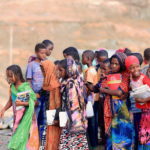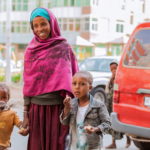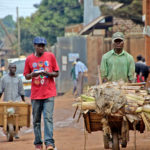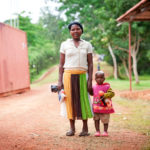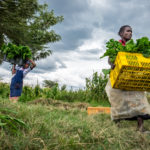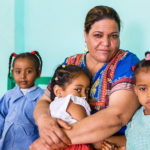The project, to be conducted jointly by the Centre for Global Development (CGD) and Policy Studies Institute (PSI), aims to answer the following questions by evaluating a randomized trial of community-based childcare and early learning facilities as part of Ethiopia’s flagship Productive Safety Net Programme (PSNP): What is the impact of providing affordable childcare to…
RCT
Information Frictions and Gender Inequality in Online Labour Markets
Information asymmetry on the part of job seekers or applicants and employers may lead to skills mismatches that increase gender inequality in labour markets. Can online labour markets close gender gaps in employment by smoothing information frictions? And to what extent does providing more information to both applicants and firms lead to improved matching and…
Long-Run Impacts of Factory Jobs: Labour Market Outcomes, Wellbeing, and Fertility in Ethiopia
In recent years, Ethiopia has become a hub for textile and garment manufacturing. These factories provide employment opportunities in low-skilled jobs, drawing many young women into the formal labour force. Although the factories create formal jobs in a labour market characterized by a lack of wage employment opportunities, an important question remains whether low-skilled factory…
Long-Term Labour Market Impacts of Adolescent Girls’ Empowerment Interventions in Bangladesh
In this study, we conduct a long-term follow-up of an empowerment programme (which raised labour force participation prior to marriage) and an anti-child marriage programme. We (a) investigate how exogenously changing adolescent girls’ (i) empowerment, (ii) marriage age, and/or (iii) education in rural Bangladesh affects their labour market outcomes over the long term (15 years…
Resilience and Recovery: The Economic Impact of COVID-19 on the Informal Sector in Uganda
The number of COVID-19 cases in Africa is exponentially increasing and WHO experts fear not only many fatalities but also devastating social and economic consequences. African governments have responded to the pandemic by strict shutdowns of public life and, thereby, economic activities. The pandemic therefore not only imposes a global health threat, but it poses…
Returns to Childcare and Capital: Experimental Evidence from Uganda
Microenterprises are an important source of employment, particularly in low-income countries where they employ more than half of the labor force. While access to finance has often been viewed as a powerful tool for small-scale business development, a growing literature has shown that success is not guaranteed and may depend critically on the entrepreneur’s gender.…
Taming Counterfeits Markets with Consumer Information
Access to quality inputs is critical for boosting agricultural productivity. However, quantitative research (Tjernström et al., 2017; Bold et al., 2017; Ashour et al., 2019) and news reports (Muchiri, 2019; Okinda, 2019) have documented that the quality of agricultural inputs—such as seeds, fertilizer, and pesticides—is often low in rural African markets. The inability of buyers…
Meet Your Future: Job Search Effort and Aspirations of Young Jobseekers
The Meet You Future Project (MYF) is an ongoing RCT designed in partnership with BRAC Uganda to investigate the relative importance of several barriers to quality employment that students face when transitioning from the educational sector into labor markets characterized by high levels of informality. The experimental setting is that of Vocational Training Institutes (VTIs) in…
The Impact of COVID19 Pandemic on the Small Firms in Developing Countries
COVID19 has paralysed the world over the last few months. To limit the spread of the disease, many countries adopted lockdown and social distancing measures. While these measures are seen as vital in containing the disease, they have also precipitated an unprecedented economic crisis. The crisis is hitting low- and middle-income countries (LMICs) harder on…
The Impact of Subsidized Access to Nurseries and Employment Services on Mothers’ Labour Market Outcomes and Child Development in Egypt
There are three main explanations for why female labor force participation (FLFP) remains low globally: (1) women’s high opportunity cost of time, (2) weak labor demand, and (3) restrictive gender norms. This project examined all three constraints on FLFP in a low-income context in Egypt. Specifically, the study addressed the following research questions: (i) whether…
